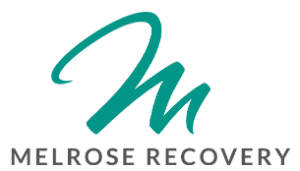Alcohol Rehab Rancho Santa Margarita
Alcohol Rehab Rancho Santa Margarita – If you find it difficult to limit your drinking, you might have a problem. Regular, heavy drinking can lead to increased tolerance, and from there, dependency and addiction are the next steps. If you don’t seek treatment for an alcohol use disorder (AUD), it has the potential to progress into full-blown alcoholism. Fortunately, you can reduce your risk for alcoholism by seeking professional alcohol addiction treatment now.
Welcome to Melrose Recovery, your pathway to transformation and healing. Located in the vibrant heart of Los Angeles, California just moments away from iconic Hollywood and the picturesque beaches of Santa Monica and Venice, we are dedicated to changing lives. Since 2015, our comprehensive alcohol rehab treatment approach encompasses detoxification, residential care, and aftercare services, all tailored to meet each individual’s unique needs on their recovery journey.
Led by a compassionate team of addiction professionals and counselors, we offer a range of therapy programs designed to support and guide individuals suffering delirium tremens, DTs, relapse and utter misery toward lasting sobriety. At Melrose Recovery, we believe in the power of personalized care and diverse treatment options to pave the way for a brighter future.
Why Do I Need an Alcohol Rehab Rancho Santa Margarita
To understand why you need treatment, you first must gain a better comprehension of addiction. Contrary to popular belief, addiction is a disease, not a choice. Once a person develops an alcohol addiction, the task of quitting becomes more complicated.
Alcohol problems occur in varying levels of severity. For example, people who suffer from alcohol abuse find it challenging—but not impossible—to limit how much or how often they drink. These individuals regularly engage in binge-drinking, but they still retain some (little) control over their drinking.
Individuals with alcohol addictions, on the other hand, lack any and all control over their drinking. Some alcoholics begin drinking from the moment they wake up until the time they fall asleep. Others manage to get through work and fulfill their daily obligations before taking the first drink.
If you’re questioning whether you need alcohol addiction treatment, chances are likely that you have a problem or are on the cusp of one. Your issue with alcohol abuse might not have yet become alcoholism, but you shouldn’t put off seeking treatment.
Quality alcohol addiction treatment can help you gain control over your drinking and develop healthier habits. Total recovery will not happen overnight, but it is possible. You can stop the abuse before it progresses into something that will diminish what little self-control you have left.
A vital part of the recovery process is managing alcohol withdrawal, a critical step that our program supports with comprehensive care. Our team at Melrose Recovery provides medical supervision and compassionate support to ease symptoms and safely guide you through this challenging phase.

What Is Alcohol Use Disorder (AUD)?
Alcohol Use Disorder (AUD) is a medical condition defined by an inability to control or stop drinking despite its negative effects on one’s life. It’s a chronic disease that affects the brain and behavior, ranging from mild to severe, and is commonly called alcoholism or alcohol addiction.
Here’s an overview:
Symptoms
People with AUD may:
- Drink more or longer than intended
- Try to cut down but fail
- Spend a lot of time obtaining, using, or recovering from alcohol
- Crave alcohol when not drinking
- Continue drinking despite problems with health, relationships, or responsibilities
- Develop a tolerance (need more alcohol to get the same effect)
- Experience withdrawal when not drinking (shakiness, sweating, nausea, irritability)
Causes and Risk Factors
- Genetics: Family history of alcohol problems
- Environment: Social pressure, early exposure, trauma, or stress
- Mental health: Depression, anxiety, or trauma can increase risk
- Pattern of drinking: Binge or heavy drinking habits
Impact
- Health: Liver disease, heart problems, neurological damage, cancers
- Social: Relationship strain, job loss, legal issues
- Psychological: Depression, anxiety, and worsened mental health
Diagnosis and Treatment
AUD is diagnosed using criteria from the DSM-5 (a clinical manual). Treatment can include:
- Detoxification (under medical supervision)
- Behavioral therapy (CBT, motivational interviewing, group therapy)
- Medications (naltrexone, acamprosate, disulfiram)
- Support groups (Alcoholics Anonymous, SMART Recovery)
What are the signs of liver damage from drinking? – Alcohol Rehab Rancho Santa Margarita
Liver damage from drinking—especially chronic alcohol use—can develop gradually and show both subtle and serious symptoms as it progresses. Here are common signs of liver damage related to alcohol:
Early Signs (Fatty Liver / Alcoholic Hepatitis):
These may be mild or unnoticed at first:
- Fatigue or weakness
- Loss of appetite
- Nausea or vomiting
- Abdominal discomfort, especially in the upper right side
- Weight loss
- Mild jaundice (yellowing of skin or eyes)
- Dark urine or pale stool
Moderate to Severe Signs (Alcoholic Hepatitis / Cirrhosis):
As liver function worsens:
- Persistent jaundice
- Swelling in the legs, ankles, or abdomen (edema/ascites)
- Easy bruising or bleeding
- Confusion, memory problems, or changes in behavior (hepatic encephalopathy)
- Itchy skin
- Spider-like blood vessels on the skin
- Red palms (palmar erythema)
- Enlarged breasts in men (gynecomastia)
- Menstrual irregularities or impotence
Life-Threatening Complications (Advanced Cirrhosis):
- Vomiting blood (from varices in the esophagus or stomach)
- Black, tarry stools
- Severe confusion or coma
- Liver failure
- Liver cancer (hepatocellular carcinoma)
Frequently Asked Questions About Alcoholism
What is alcoholism?
Answer: Alcoholism, or Alcohol Use Disorder (AUD), is a chronic disease characterized by an inability to control or stop drinking despite negative consequences to health, relationships, and daily functioning.
What causes alcoholism?
Answer: Causes include genetic predisposition, environmental factors, trauma, mental health disorders, social influences, and early exposure to alcohol.
What are the main symptoms of alcoholism?
Answer: Symptoms include craving alcohol, inability to limit drinking, withdrawal symptoms, tolerance, and continued use despite harm.
How is alcoholism diagnosed?
Answer: It’s diagnosed through clinical evaluations based on criteria in the DSM-5, including behavior, drinking patterns, and impact on life.
What is the difference between alcohol abuse and alcoholism?
Answer: Alcohol abuse is excessive drinking that leads to problems, while alcoholism includes physical dependence and addiction.
What are the health risks of alcoholism? – Alcohol Rehab Rancho Santa Margarita
Answer: Risks include liver disease, heart problems, brain damage, pancreatitis, cancer, and weakened immune function.
Can alcoholism be genetic? – Alcohol Rehab Rancho Santa Margarita
Answer: Yes, genetics can increase the risk, especially when combined with environmental and psychological factors.
What are common signs of alcohol withdrawal? – Alcohol Rehab Rancho Santa Margarita
Answer: Symptoms include anxiety, tremors, nausea, sweating, irritability, hallucinations, and seizures.
How is alcoholism treated? – Alcohol Rehab Rancho Santa Margarita
Answer: Treatment may include detox, therapy, medication (like naltrexone), support groups, and rehab programs.
What is detox, and is it necessary? – Alcohol Rehab Rancho Santa Margarita
Answer: Detox is the process of eliminating alcohol from the body. It’s often the first step in treatment, especially for those physically dependent.
Can you treat alcoholism at home? – Alcohol Rehab Rancho Santa Margarita
Answer: Mild cases may be managed with outpatient support, but severe alcoholism usually requires professional help.
What is Alcoholics Anonymous (AA)? – Alcohol Rehab Rancho Santa Margarita
Answer: AA is a 12-step support group for people recovering from alcoholism, providing peer support and structure.
Are there medications for alcoholism? – Alcohol Rehab Rancho Santa Margarita
Answer: Yes, medications like disulfiram, naltrexone, and acamprosate can help reduce cravings and prevent relapse.
How long does it take to recover from alcoholism? – Alcohol Rehab Rancho Santa Margarita
Answer: Recovery is a lifelong process, but significant improvements can be seen within weeks to months of treatment.
Can people with alcoholism ever drink again? – Alcohol Rehab Rancho Santa Margarita
Answer: For most, complete abstinence is recommended. Controlled drinking is generally not safe due to the risk of relapse.
How does alcoholism affect mental health? – Alcohol Rehab Rancho Santa Margarita
Answer: It can worsen or trigger anxiety, depression, psychosis, and increase suicide risk.
What role does therapy play in recovery? – Alcohol Rehab Rancho Santa Margarita
Answer: Therapy helps identify triggers, build coping skills, and address underlying emotional or mental health issues.
Can alcoholism lead to other addictions? – Alcohol Rehab Rancho Santa Margarita
Answer: Yes, cross-addiction to drugs, nicotine, or gambling is common among people with AUD.
How does alcoholism affect families? – Alcohol Rehab Rancho Santa Margarita
Answer: It can cause emotional stress, abuse, neglect, financial problems, and relationship breakdowns.
Is it possible to prevent alcoholism? – Alcohol Rehab Rancho Santa Margarita
Answer: Risk can be reduced through education, early intervention, healthy coping skills, and limiting exposure to alcohol.
What is high-functioning alcoholism? – Alcohol Rehab Rancho Santa Margarita
Answer: It refers to people who appear successful or in control but are secretly struggling with alcohol addiction.
How does alcohol tolerance relate to alcoholism? – Alcohol Rehab Rancho Santa Margarita
Answer: Higher tolerance can be a sign of dependence, as the body needs more alcohol to feel its effects.
Is binge drinking the same as alcoholism? – Alcohol Rehab Rancho Santa Margarita
Answer: No, but frequent binge drinking can lead to alcoholism and still causes serious health risks.
What are the long-term effects of alcoholism on the brain? – Alcohol Rehab Rancho Santa Margarita
Answer: It can lead to memory loss, cognitive decline, brain shrinkage, and Wernicke-Korsakoff syndrome.
How can someone support a loved one with alcoholism? – Alcohol Rehab Rancho Santa Margarita
Answer: Offer support without enabling, encourage treatment, set boundaries, and consider joining support groups like Al-Anon.
Consider an Alcohol Rehab Program at Our Los Angeles Facility
If you’re ready to stop drinking and start working towards positive changes, Melrose Recovery in Los Angeles, California, can help. Our premier facility offers an impressive list of comprehensive substance abuse treatment programs and addiction therapies. Regardless of what your specific recovery needs are, we have programs that can guide you towards sustainable results.
If you choose Melrose Recovery for treatment, we’ll customize an alcohol addiction treatment plan that can target your one-of-a-kind needs. To help our clients achieve true rehabilitation, we offer the following addiction treatment programs and addiction treatment therapies:
- Addiction detox center
- Residential addiction treatment
- Experiential therapy program
- Evidence-based therapy
- Holistic addiction treatment
- Art therapy program
- Music therapy program
- Exercise therapy
- Nutrition education
- 30-day Suboxone Taper
At Melrose Recovery, we understand how overwhelming it can be to leave home and enter into a rehab program. We want you to feel at ease and supported during your time with us. Our facility offers a safe and comfortable environment in which you can focus on healing and regaining your independence. We’ll help guide you towards a sober and productive future.
The Road to Recovery Starts at Melrose Recovery Alcohol Rehab
Health Insurance PPO Plans for Alcohol Rehab Rancho Santa Margarita
PPO Plans for Melrose Recovery – Alcohol Rehab in Los Angeles, California
Finding effective treatment for drug and alcohol addiction is one of the most important steps in the recovery journey. For many individuals and families, navigating how to pay for rehab can be a major concern. Fortunately, Melrose Recovery, a leading addiction treatment center in Los Angeles, California, accepts a wide range of PPO (Preferred Provider Organization) health insurance plans, making high-quality care more accessible and affordable.
Why Choose Melrose Recovery?
Melrose Recovery offers a structured and supportive environment for individuals seeking recovery from substance use disorders. Their programs include:
- Medical Detox
- Residential Inpatient Treatment
- Dual Diagnosis Treatment
- Individual and Group Therapy
- Aftercare Planning
What sets Melrose apart is their client-centered approach, experienced clinical team, and commitment to long-term recovery. Located in Los Angeles, the facility provides a safe and comfortable setting to begin healing.
What Are PPO Insurance Plans?
PPO insurance plans allow policyholders to see healthcare providers both inside and outside of their insurance network, usually without a referral. When it comes to addiction treatment, this flexibility can be vital.
Key PPO benefits for rehab coverage:
- Out-of-network options: You can still receive coverage for facilities not directly in your provider’s network.
- No referral needed: You don’t need a referral from a primary care physician to start treatment.
- More provider choices: PPO plans give you more freedom to choose the rehab facility that fits your needs.
Does Melrose Recovery Accept My PPO Insurance?
Melrose Recovery works with most major PPO insurance providers, including but not limited to:
- Aetna
- AmeriHealth
- Anthem
- Blue Cross Blue Shield
- Cigna
- Hawaii Medical Service Association (HMSA)
- Humana
- Kaiser Permanente
- Medical Mutual
- Premera Blue Cross
- UnitedHealthcare
Melrose Recovery’s admissions team is available 24 hours a day 714-442-7782 to verify your insurance benefits quickly and confidentially. This process helps determine your coverage, deductible, co-pays, and out-of-pocket maximums before starting treatment.
Verifying Insurance Coverage
To find out if your PPO insurance plan covers treatment at Melrose Recovery:
- Call Melrose Recovery directly – Speak with an admissions specialist who can walk you through the insurance verification process.
- Submit insurance info online – Many treatment centers, including Melrose, offer a secure online form for quick verification.
- Check with your insurer – You can also contact your insurance company directly and ask about your behavioral health benefits.
The Importance of Getting Help
Addiction is a chronic and progressive condition—but with the right support, recovery is absolutely possible. By accepting a variety of PPO plans, Melrose Recovery helps reduce financial barriers to care, so individuals and families can focus on healing rather than costs.
Take the First Step Today
If you or a loved one is struggling with addiction, don’t wait. Melrose Recovery in Los Angeles offers compassionate, evidence-based care in a supportive setting. With PPO insurance coverage, treatment may be more affordable than you think.
Contact Melrose Recovery today to learn more about admissions and insurance verification. Your path to recovery can start now.





Get In Touch
info@melroserecovery.com
Facility >> 501 North Mariposa Ave, Los Angeles, CA 90004



